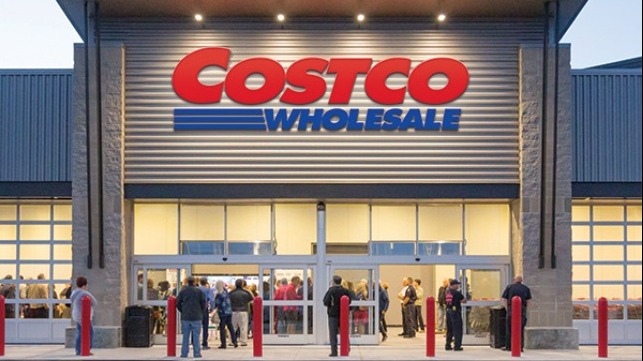Costco Wholesale Corporation became the latest large retailer to detail its plans to support its supply chain by chartering containerships to move merchandise between Asia and North America. Speaking to investors on its earnings conference call, the company, which is the third largest global retailer, discussed the pressures on the supply chain and its impact on its business.
The warehouse club retailer, which operates more than 800 big box stores mostly in the United States and Canada, told analysts that it has chartered three ocean vessels for the next year to transport containers between Asia and the U.S. and Canada. They reported that have also leased several thousand containers for use on these ships.
“Every ship can carry 800 to 1,000 containers at a time and we’ll make approximately 10 deliveries during the course of the next year,” said CFO Richard Galanti. When questioned by an analyst, the CFO quantified the shipments to less than 20 percent of the retailer’s Asian shipments, but it illustrates the steps the company is taking to manage its supply chain and costs.
Describing the issues the retailer is facing, they highlighted the impact of port delays, container shortages, COVID disruptions, shortages on various components, raw materials, and ingredients as well as labor cost pressures, with trucker and driver shortages. Chip shortages they said are impacting many items, citing as examples of the impacted items, computers, tablets, video games, and major appliances. Sales of goods including home furnishings and sporting goods they said are strong but taking far longer to get to the stores.
Like other major retailers, Costco said it “ordered more and earlier…. we’re bringing in some of the items early. The feeling is from the buyers is that this will likely extend into 2022.” At the same time, “we’re putting some limitations on key items like bath tissues, roll towels, signature water, high-demand cleaning-related skews related to the uptick in adults-related demand. Further delays and some shortages caused traditional rollout times to go from 8 to 12 weeks up to 16 to 18 weeks.”
For the first time in seven years, the giant retailer is also taking a non-cash financial charge against recently arriving inventory because of the price inflation pressures it is facing. The CFO cited higher labor costs, higher freight cost, higher transportation demand, along with container shortages and port delays, all as factors contributing to the inflationary impact on performance. The LIFO (last in first out inventory) charge recorded in the quarter was $30 million with the CFO saying the company is, “estimating the overall price inflation of the products we’re selling to be in the 3.5 to 4.5 percent range.” He cited examples of suppliers reporting they are paying between two and six times as much for containers and shipping.
Costco expects that the pressures on the supply chain will continue into 2022, while they warned investors that they thought the freight cost increases are likely permanent or at least likely to persist for the next year.
Source: Ther Maritime Executive






